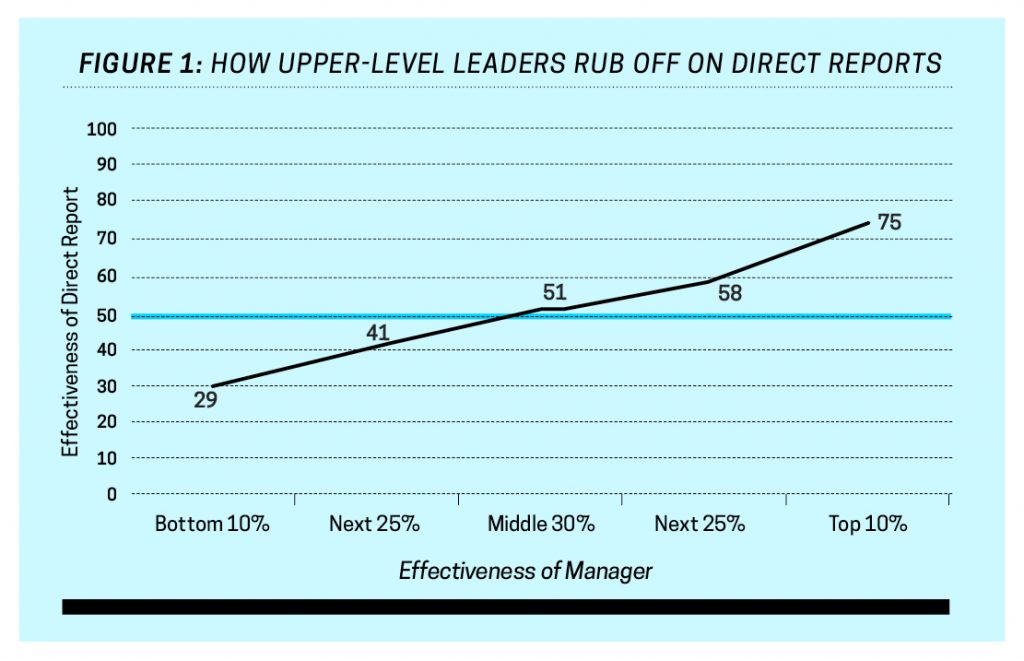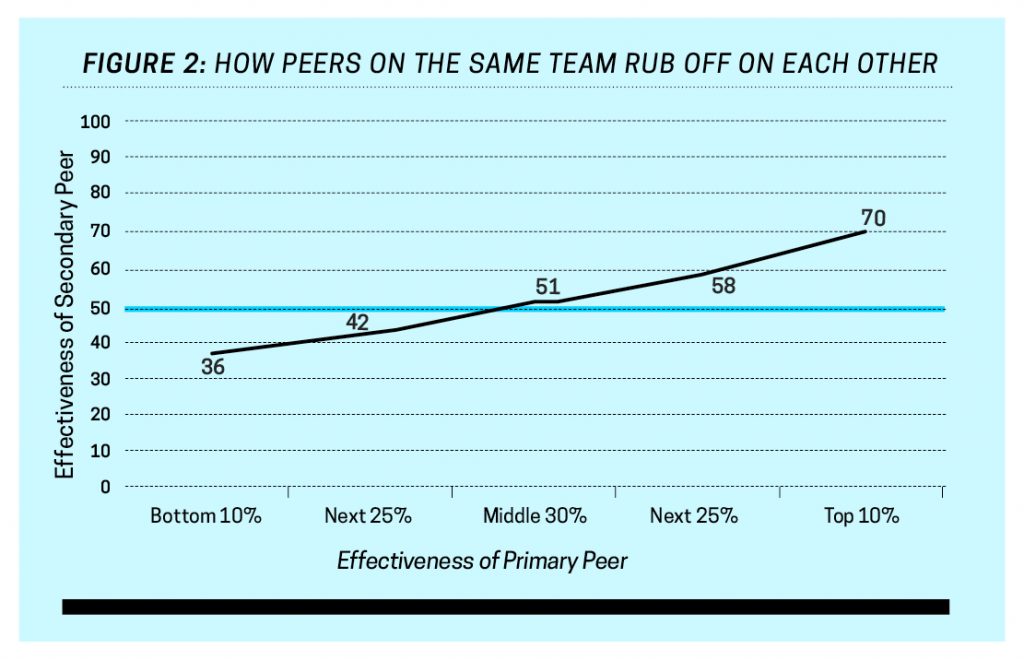Research shows you’re more influenced by your boss and your peers than you think—for better and worse.
By Jack Zenger and Joe Folkman
Most kids copy their friends. When parents see their children chasing rowdy tykes on the playground, they’re bound to sit down and talk with the youngsters about the company they keep. Same goes for when those precious kids become susceptible teens and start hanging with strange classmates from the wrong side of the tracks. But at least when those young adults turn into actual adults, they’re finally immune to the influence of others … right?
Maybe not. In an experiment, Michael Arena, General Motors’ chief talent officer, placed half of newly hired employees into a group with highly engaged veteran staffers and the other rookies into a less-engaged group.
Sign up for the monthly TalentQ Newsletter, an essential roundup of news and insights that will help you make critical talent decisions.
During the first few months, both new groups reported high engagement levels. But two years later, only the employees who joined the highly engaged group maintained those levels; the rest of the recent hires reported feeling the same as their unengaged teammates.
Turns out, we’re still pretty impressionable after all.
Arena’s research made us curious to see how different attitudes and skills are shared within a team. We first looked at 260 upper-level managers and evaluated their overall leadership effectiveness using a 360-degree assessment.
Then we assessed how effective their 265 direct reports—also bosses, but at a lower level —were as leaders and linked the results together. If the upper-level manager had no effect, then the lower-level manager would perform at the 50th percentile.
Figure 1: How Upper-Level Leaders Rub Off on Direct Reports

As Figure 1 demonstrates, the upper-level managers’ skills had a profound impact on the effectiveness of their direct reports. Poor leaders tanked their juniors’ effectiveness by 19 percentile points, while the best leaders—those in the top 10 percent—boosted their reports’ performance by 25 percentile points. We determined that poor leadership is about as contagious as excellent leadership.
We also wanted to find out if the effectiveness of peers in a team was contagious. For this analysis, we matched 25,248 peers with colleagues who worked in the same team. We assigned some of the employees to be the primary peers, and their colleagues on the same team to be secondary peers.
Figure 2: How Peers on the Same Team Rub Off on Each Other

As you’ll see in Figure 2, their influence is very similar to managers’, albeit less pronounced. Many people believe having highly talented individuals acting alone will create success; if you can hire and retain the brightest stars, it’s virtually guaranteed. But while having top talent is always an enormous benefit, it’s becoming clearer that the way people work together in an organization will play a significant role in achieving organizational success.
In a 2010 Management Science study, Jasjit Singh and Lee Fleming compared the success rate of lone inventors to inventors working in teams. By analyzing over half a million patent innovations, they found that a small team was 64 percent more likely to have a top-5 percent patent than a scientist working alone.

We usually consider Steve Jobs as the quintessential lone innovator, but in the early days of Apple, it was Steve Wozniak and other engineers who took Jobs’ vision and brought it to life. Jobs’ valuable contribution was to get talented people to create products that fulfilled his vision. Similarly, Thomas Edison was an inventor who accumulated 2,332 patents, but his team of more than a dozen engineers, machinists, and physicists actually made all those discoveries possible.
If you want to forge lasting success in an organization, you should start with building teams that engage every member and enhance others’ skills. The atmosphere in a team is as contagious as the flu. So get infected.
Jack Zenger is the cofounder and CEO of Zenger Folkman, a professional services firm providing consulting and leadership development programs for organizational effectiveness initiatives. He is the co-author of seven books on leadership, including Speed—How Leaders Accelerate Successful Execution.
Joe Folkman is the cofounder and president of Zenger Folkman. He is a highly acclaimed keynote speaker at conferences and seminars the world over. His expertise focuses on a variety of subjects related to leadership, feedback, and individual and organizational change.


